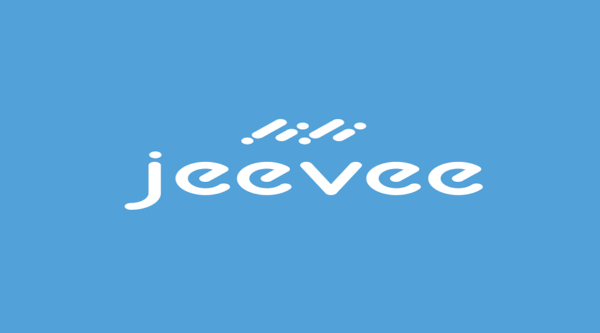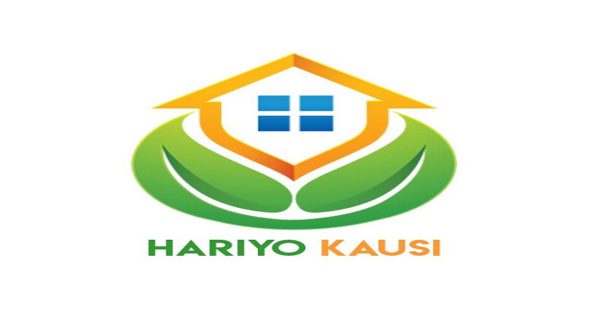Lockdown: An opportunity for some start-ups but a misfortune for others
Many start-ups that had been launched with much expectation are in danger of collapsing at the moment while those that had just been started then have been lucky and have been able to scale up their business considerably.
KATHMANDU: Many start-ups that had been launched with much expectation are in danger of collapsing at the moment. What seemed to be innovative and effective business models at the time of their launch are fighting for survival due to the nationwide lockdown imposed by the government to contain the spread of the coronavirus.
However, some start-ups that had just been started then have been lucky and have been able to scale up their business considerably. It is especially those tech start-ups that were launched with relevant business models that are now thriving and making millions in profits. These nascent companies basically rely on the online platform for their sustainability and for them the lockdown proved to be a blessing in disguise as more people started using electronic means to make purchases or avail services.
For instance, visiting the doctor at present for health check-ups is next to impossible and even if one does have the opportunity to go to a healthcare facility it is a bit risky as the number of positive COVID-19 cases has been rising significantly in the county. Jeevee Health Pvt Ltd, an e-pharmacy company, grabbed the lockdown as an opportunity to increase its online medical health service.
Jeevee is a health tech app launched by its founder and CEO Aabhusan Jyoti Kansakar in July, 2019 and has become and effective tool for people seeking health services during the lockdown. Kansakar had launched the app with an aim to fill the technological gap in the medical sector just before the crisis hit the country.

Kansakar has seen a tremendous rise in the number of people availing Jeevee’s service at present and claims that in the initial days of the lockdown his was the only app in the country providing medical and online health consultation services. “We added a new feature called Namaste Doctor on the 11th day of the first lockdown and have five doctors available for online health consultations,” he informs. As per Kansakar, they have been able to provide services under the Namaste Doctor feature to over 20,000 families till date.
Prior to the lockdown Jeevee used to receive a maximum of 60 inquiries a day, which has now risen to 200 inquiries.As there is no traffic during the lockdown it is easy to make quick deliveries of medicines but the challenge was in the limited number of people available for packaging and deliver, mentions Kansakar. “We were not prepared for that and it was difficult in the first 15 days.”
Skill Sewa that was launched in September 2019 was not fully prepared for the crisis that would follow after the lockdown. However, it did not require any changes to its business model and has been able to flourish. In fact, the lockdown helped the company in its branding too. Unlike other businesses,the lockdown was a boon for its building inspection, maintenance and renovation service.
Ramesh Timilsina, CEO and founder of the company, shared, “Many people were at home during the lockdown due to which they were able to detect many problems in their homes like seepages and damages to the walls, so it became easier for us to make people aware about our service.”

According to him, the company at present has been getting at least three inquires daily. Since, its service relies on visiting homes it has not been able to provide its services to all customers because of the second phase of the lockdown. “There has been high demand for seepage problems but we have not been able to deliver our service as per demand as it takes quite a number of days to repair such damages,” he states.
Taking into consideration the uncertainty created by the lockdown many entrepreneurs have embraced other business models while some have adopted the online platform for survival. When other new start-ups were halting their operations, a new tech company called Gyapugot good exposure in the Nepali market during the lockdown and has been able to create a brand for itself within five months of its launch in April this year.
The company’s Business Development Manager , Shekhar Khadka says,“Though people were aware about e-commerce it was not much in use before the lockdown. The lockdown has cultivated a habit of online shopping among people and they at least test our products through the e-commerce platform now. Otherwise, it would have taken us five to 10 years to increase our business.”

Khadka shares that it was mainly grocery products that were in demand in the first phase of the lockdown and they were able to receive good response in a short period of time. “There was high demand for liquor products too, so now we plan to launch a platform to provide a diverse range of products like Amazon.We have been utilizing 12 vehicles for delivery,”he says.
SagarMaharjan, an entrepreneur involved in the food business and who has been operating Brother’s Sandwich Point since two years has now come up with anew idea to serve his clients. Since August, he started producing frozen momos as a new way to sustain his business.
He says, “My food business was shut down due to the lockdown and it had become difficult to even pay the rent. At the same time many people were missing momos which is one of the most loved food items in the country. So, I started making frozen momos after brainstorming a lot on how I could sustain my business.”

Maharjan reveals that he has just completed marketing, packaging and branding his product through social media.“During the lockdown I received orders for 20 to 30 plates of momos every day and now I am planning to add fries and chips in the menu. Now, in this second phase of the lockdown I have had to brainstorm again on how to deliver my products,” he says.
Many start-ups are on the verge of collapse as they did not have enough savings and were not well prepared to tide over the crisis that was brought about by the lockdown as business operations faced obstructions and expenses increased. Meanwhile, some have been able to do good business by just posting about the services they provide on various social media even before registering their firm.
HariyoKausi is one such example of a company which is just in the process of getting registered as an agro start-up company but has already provided services to thousands of customers in the residential areas of the valley. BishalSapkota, an agro entrepreneur, started teaching about rooftop farming and delivering agro products like chemical fertilizers and seeds, among others, to people through his Facebook page ‘KausiKheti’ in May. It has been receiving more than 30 inquiries for its service whereas its page has gathered 2,000 followers within the last three months.

Many start-ups are in a dilemma now on whether to continue with their business or close shop. Incubators like Idea Studio that have been supporting start-up businesses suggest entrepreneurs to better manage human resources to sustain themselves during this current crisis. They have advised entrepreneurs to communicate with their landlords regarding rent and with suppliers to avoid any disruption in supply. Start-ups have also been asked to adopt strategies and relevant business models without hurting their brand and identity.
According to Founder of Idea Studio, RupeshShrestha, start-ups are likely to struggle more than the already established companies. He mentions that most start-ups are in the early phase of establishing their products and brands in the market and many lack preparedness to deal with a crisis of this kind. “They do not have enough capital and are confused on whether to quit or carry on. It would be good for them to change their business model as per the current situation and requirement to survive at present,” he adds.
Suggesting entrepreneurs to use the online platform, SushantRijal, programme director of Kings’ Incubation Center, also states that the market is volatile now.“So, entrepreneurs can think of remodeling or modifying their business to suit and survive the current times like how Nokia has done in recent years.”














Facebook Comment